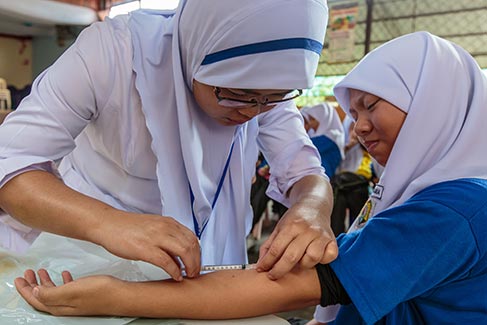 Bolstered by the presence of the Bill & Melinda Gates Foundation, the University of Washington and PATH, Washington’s life science and global health organizations are also benefitting from their proximity to technology companies.
Bolstered by the presence of the Bill & Melinda Gates Foundation, the University of Washington and PATH, Washington’s life science and global health organizations are also benefitting from their proximity to technology companies.
The results are often surprising. PATH, for example, is using data visualization software produced by Seattle-based Tableau to plot a strategy for eliminating malaria in Zambia. Microsoft has offered its expertise to NetHope, a consortium of international nonprofits that provides disaster and war relief but can’t afford the cost of IT logistics. And Tableau has offered a free three-hour training on data analysis tools to members of Global Washington, just one of the many benefits of having high-tech and global health organizations in such close proximity.
This culture of collaboration and cooperation is one of the reasons why Washington State, and the Puget Sound region, in particular, is gaining international fame as a place where new ideas are solving age-old health problems through the blend of science and technology.
“As the business community has done, the global development community has to do — we have to go out and brand ourselves,” says Kristen Dailey, executive director of Global Washington. “We do development differently here because we have a tech-minded, forward-thinking, innovative culture,” she argues. “We’re not like the [Washington, D. C.] groups stuck on USAID contracts.”
Read more about Seattle’s growing influence in global health in Citiscope.